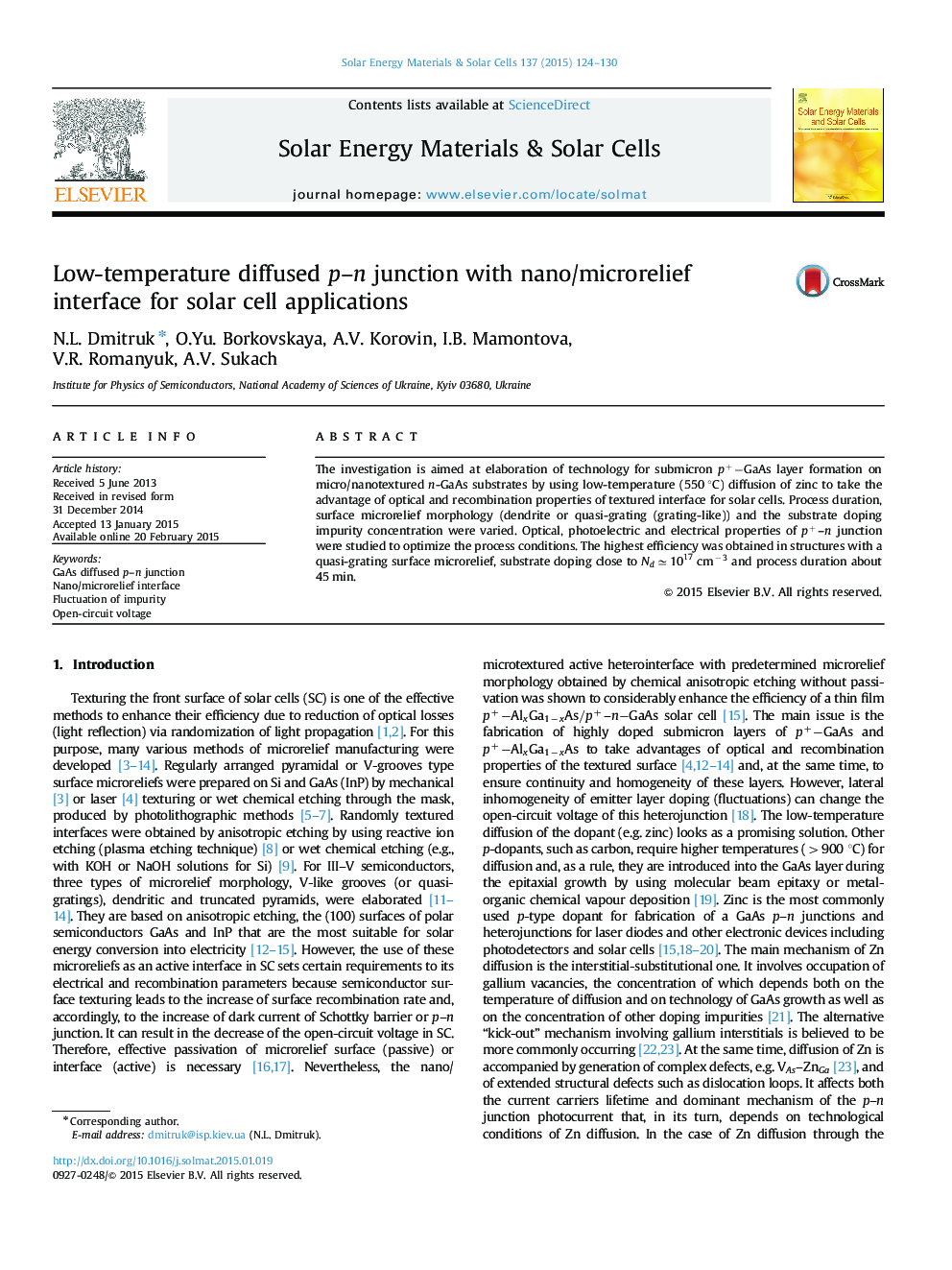| Article ID | Journal | Published Year | Pages | File Type |
|---|---|---|---|---|
| 77858 | Solar Energy Materials and Solar Cells | 2015 | 7 Pages |
•Technology of diffused GaAs p+-np+-n junction with microrelief interface was elaborated.•Surface microrelief with different morphology was obtained by anisotropic etching.•Optical, photoelectric and electric characterization to optimize low-temperature diffusion.•Theoretical analysis of doping fluctuation effect was performed.•Low-temperature diffusion conditions were optimized for different relief morphologies.
The investigation is aimed at elaboration of technology for submicron p+-GaAsp+-GaAs layer formation on micro/nanotextured n-GaAs substrates by using low-temperature (550 °C) diffusion of zinc to take the advantage of optical and recombination properties of textured interface for solar cells. Process duration, surface microrelief morphology (dendrite or quasi-grating (grating-like)) and the substrate doping impurity concentration were varied. Optical, photoelectric and electrical properties of p+p+–n junction were studied to optimize the process conditions. The highest efficiency was obtained in structures with a quasi-grating surface microrelief, substrate doping close to Nd≃1017cm−3 and process duration about 45 min.
